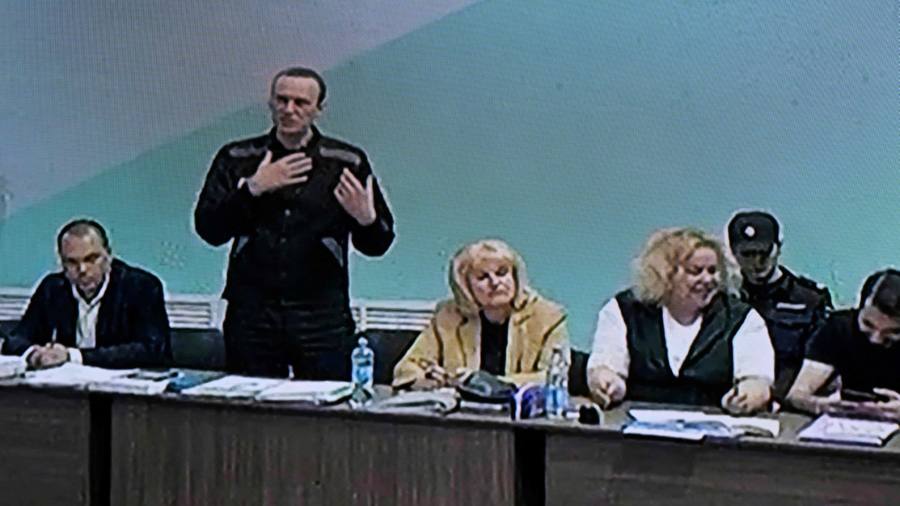Alexei Navalny, Russia’s most prominent opposition activist, urged his countrymen to join a new information campaign against the war on Ukraine as he stood trial on charges that could keep him imprisoned for decades.
On Monday, a rare trial behind closed doors started in Melekhovo prison, 250km east of Moscow, where Navalny is jailed. The highly usual proceedings are part of a draconian crackdown on wartime dissent that Navalny says will probably leave him behind bars for at least as long as Russian president Vladimir Putin remains alive. The charges of “extremism” brought against Navalny in April carry a sentence of up to 30 years in prison.
“The most important thing is this trial’s form: it’s a trial inside a prison,” Navalny wrote in a message that his supporters posted on his website. “Putin isn’t shy about jailing innocent people or scared that a crowd could break me out . . . he’s scared of what I have to say. Even if it’s obvious words everyone already knows.”
He said he wanted to use call centres outside Russia, as well as social media and messaging apps, to create a “truth machine” that would reach out to Russians and convince them to change their views on the war.
Navalny is only able to openly challenge the war in his court appearances and letters written from prison — but he said he had tested out the idea on his own guards, who had “begun to think about it and start doubting”.
Prosecutors claimed the trial had to be held behind closed doors for security reasons. Navalny’s supporters said the move was part of an aggravating trend to silence him behind bars.
Navalny, 47, was arrested in 2021 upon his return from Germany where he was recovering from an assassination attempt with weapons-grade nerve agent. He was subsequently charged with nearly a dozen criminal offences and convicted of fraud last year, when he was moved to the prison in Melekhovo.
He was placed in solitary confinement 16 times in conditions that he says amount to torture. If convicted of the new charges, he could be transferred to another top level-security facility where inmates serve life sentences and where his contact with the outside world would be curtailed further.
Most of his supporters fled the country after Russia banned his Anti-Corruption Foundation in 2021. They are now based mainly in Lithuania, where they have continued posting on YouTube and campaigning for his release.
In Russia, even associating with Navalny’s team carries serious risks. Last week, a court sentenced Lilia Chanysheva to 7.5 years in prison for “creating an extremist organisation”. Chanysheva had led Navalny’s office in the central Russian city of Ufa.
Read the full article here




